![ISKRA 1903: South on the Northern (1988/9) [2 CDs] (Emanem) ISKRA 1903: South on the Northern (1988/9) [2 CDs] (Emanem)](https://www.teuthida.com/productImages/misc4/18111.jpg)
Two concerts from an eight-year gap in the published recordings of the ISKRA 1903 trio of Paul Rutherford (trombone), Philipp Wachsmann (violin & electronics) and Barry Guy (bass & electronics), masterful improvisation blending acoustics and electronics.
Out of Stock
Quantity in Basket: None
Log In to use our Wish List
Shipping Weight: 4.00 units
Sample The Album:
Paul Rutherford-trombone
Philipp Wachsmann-voilin, electronics
Bary Guy-doublebass, electronics
Click an artist name above to see in-stock items for that artist.
UPC: 5030243520329
Label: Emanem
Catalog ID: 5203
Squidco Product Code: 18111
Format: 2 CDs
Condition: New
Released: 2013
Country: Great Britain
Packaging: Cardstock Gatefold Sleeve 3 panels
"Two concerts in south London pubs - examples of free group improvisation at its very best, which just go to show that there was no musical reason for the hitherto gap in the documentation of this superb trio.
"These two concerts come from an eight-year gap in the published recordings of Iskra 1903, between the 1983 tour heard on CHAPTER TWO and the concert heard on FRANKFURT 1991. They certainly show that there was no musical reason for such a gap - on the contrary, they make this listener want more. This surely must have been one of the most musically consistent bands ever, with this second version continuing the high standards set by the original edition.
I cannot recall hearing a dull, let alone bad, performance of Iskra 1903. Even the music they recorded around 1971 for a film sound track, BUZZ SOUNDTRACK, although somewhat restricted compared with their 'normal' performances, is still enjoyable good music. (The fact that it was put down in a book full of drivel only goes to confirm its worthiness.)
Madelaine Davidson describes the music of Iskra 1903 and a few other such groups as being 'internally consistent but not conventional.' In most music, consistency (where it exists) does depend on conventions such as a predetermined structure: a chord sequence or modes and/or rhythm and/or a specified chain of events, etc. In aesthetically successful free improvisation groups like Iskra 1903, even the structure is completely spontaneous and depends upon the ability of the musicians to play together and go with each other.
The result is a very wide spectrum of music ranging from slow and quiet to fast and furious, but usually staying in between these extremes. The music is always unpredictable, yet it remains totally consistent. There are no forced or preplanned unnatural moves to get from one scenario to another - one is usually not aware that the music has changed until sometime after it has.
It obviously helps that all three musicians are seasoned improvisers, each with their own distinctive voice, but also each with the ability to fit in with what the others are doing. Paul Rutherford may have put the group together in the first place, but once the music started he was no longer the leader. All three played an equal role with no one self-consciously following or imitating anyone else. Yet they managed to stay consistently together - surely one of the most difficult and rewarding skills in any area of music. Notice also how Philipp Wachsmann and Barry Guy skilfully enhance their playing with electronics, broadening their palettes considerably.
Iskra 1903 seemed to fizzle out sometime in the early to mid-1990s when gigs like these became financially impractical. (Such local gigs were virtually never financially rewarding, but could at least cover the cost of getting to and from the venue.) Perhaps the group really ended in 2007 at Rutherford's funeral where Wachsmann played a short improvised solo that managed to invoke aspects of the trombonist's playing without resorting to pastiche.
Sometime before that very sad day, Wachsmann had given me the cassettes he made of the two complete gigs heard in this double album, and I was determined to issue them, with Rutherford's concurrence. The fact that it has taken me so long to issue them has nothing to do with the music, except perhaps that Rutherford left so much great music behind that it was difficult to know where to begin."-Emanem

The Squid's Ear!
Artist Biographies
• Show Bio for Paul Rutherford "Paul William Rutherford (29 February 1940 - 5 August 2007) was an English free improvising trombonist. Born in Greenwich, South East London, Rutherford initially played saxophone but switched to trombone. During the 1960s, he taught at the Guildhall School of Music and Drama. In 1970, Rutherford, guitarist Derek Bailey and bassist Barry Guy formed the improvising group Iskra 1903, which lasted until 1973. The formation was documented on a double album from Incus, later reissued with much bonus material on the 3-CD set Chapter One (Emanem, 2000). A film soundtrack was separately released as Buzz Soundtrack. Iskra 1903 was one of the earliest free improvising groups to omit a drummer/percussionist, permitting the players to explore a range of textures and dynamics which set it apart from such other contemporary improvising ensembles as SME and AMM. The group's unusual name is the Russian word for "spark"; it was the title of the Iskra revolutionary newspaper edited by Lenin. The "1903" designation means "20th century music for trio"; occasionally Evan Parker played with the group (Iskra 1904) and Rutherford also at one point assembled a 12-piece ensemble called, inevitably, Iskra 1912. The group was later revived with Philipp Wachsmann replacing Bailey, a phase of the group's life that lasted from roughly 1977 to 1995; its earlier work is documented on Chapter Two (Emanem, 2006) and its final recordings were issued on Maya (Iskra 1903) and Emanem (Frankfurt 1991). Rutherford also played with Globe Unity Orchestra, London Jazz Composer's Orchestra, Centipede, the Mike Westbrook Orchestra, and the Orckestra, a merger of avant-rock group Henry Cow, the Mike Westbrook Brass Band and folk singer Frankie Armstrong. He also played a very small number of gigs with Soft Machine. He is perhaps most famous for solo trombone improvisations. His album The Gentle Harm of the Bourgeoisie is a landmark recording in solo trombone and his 1983 Trio album Gheim, recorded at the Bracknell Jazz Festival is another acclaimed work. Rutherford died of cirrhosis of the liver and a ruptured aorta on 5 August 2007, aged 67." ^ Hide Bio for Paul Rutherford • Show Bio for Philipp Wachsmann "Philipp Wachsmann. Born Uganda, 1944; violin, viola and electronics. In the CD booklet to Gushwachs, John Corbett notes that Phillip Wachsmann came to free improvisation from a predominantly classical background, particularly via the contemporary experiments of "indeterminacy, graphic and prose-based scores, conceptualism and electroacoustics, listening to Webern, Partch, Ives, Berio and Varèse, reading 'Die Reihe' and interrogating the rhythmic, harmonic and melodic preoccupations of Western art music. Starting in 1969, Wachsmann was a member of Yggdrasil, an ensemble performing works by Cage, Cardew, Feldman, Ashley and others and in this group he used contact mikes on the violin and made his own electronic instruments, ring modulators and routing devices. Ironically, his studies with Nadia Boulanger in Paris (1969-1970) pushed him hard in the direction of free music. He recalls: 'Despite her neoclassical orientation, her insistence that composition is about the imagination of performance and its realisation, the live moment, and her stunning ability to make this happen was a powerful influence on me, steering towards 'performance' and therefore 'improvisation'.'" Wachsmann moved from Yggdrasil to Chamberpot - recorded on Bead 2 - and shortly thereafter appeared on Tony Oxley's influential February papers, forward looking in the virtual 'industrial' orientation of some of the tracks, years before this became an accepted genre; the two musicians have continued to work together, in various groupings but notably in the percussionist's Celebration Orchestra. Philipp Wachsmann has also performed and/or recorded with: Derek Bailey's Company, e.g. on the recording Epiphanies; Georg Graewe; Barry Guy; Iskra 1903; King Übü Orchestrü; London Jazz Composers' Orchestra; Evan Parker, particularly as part of the Evan Parker Electronic Project; Quintet Moderne; Fred Van Hove's ML DD 4; Rüdiger Carl's COWWS (now CPWWS) Quintet; and Lines, with Martin Blume, Jim Denley, Axel Dörner and Marcio Mattos. He also plays as a solo musician. Phillip Wachsmann also administers Bead Records." ^ Hide Bio for Philipp Wachsmann
11/20/2024
Have a better biography or biography source? Please Contact Us so that we can update this biography.
11/20/2024
Have a better biography or biography source? Please Contact Us so that we can update this biography.
Track Listing:
Disc 1:
1. Balham Bedford 1 29:04
2. Balham Bedford 2 19:28
3. Balham Bedford 3 14:00
4. Balham Bedford 4 14:21
Disc 2:
1. Clapham Common Sun 1 25:15
2. Clapham Common Sun 2 16:02
3. Clapham Common Sun 3 32:35
Improvised Music
Electro-Acoustic
Electro-Acoustic Improv
London & UK Improv & Related Scenes
European Improv, Free Jazz & Related
Staff Picks & Recommended Items
Trio Recordings
Staff Picks & Recommended Items
Trio Recordings
EMANEM & psi
Search for other titles on the label:
Emanem.

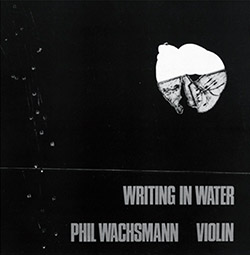
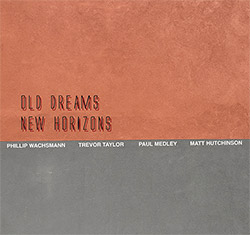
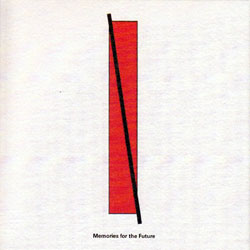

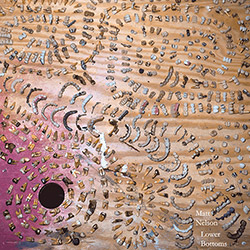

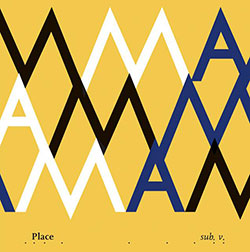





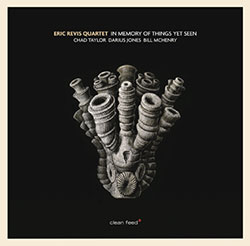
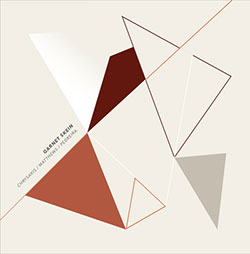

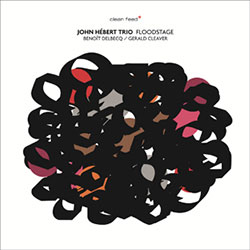


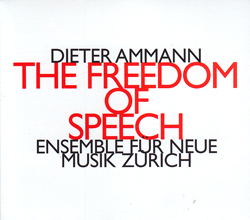



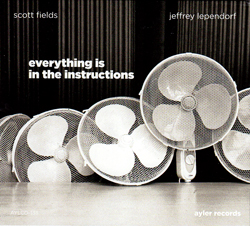





![Guy, Barry / Ken Vandermark: Occasional Poems [2 CDs]](https://www.teuthida.com/productImages/misc4/34849.jpg)
![Novoa / Carter / Mela Trio: Vol.1 [VINYL]](https://www.teuthida.com/productImages/misc4/35236.jpg)


![Elephant9 : Mythical River [VINYL]](https://www.teuthida.com/productImages/misc4/34624.jpg)
![Evans, Peter (Evans / Eldh / Black): Extra [VINYL]](https://www.teuthida.com/productImages/misc4/35279.jpg)

![McPhee, Joe: Straight Up, Without Wings [BOOK]](https://www.teuthida.com/productImages/misc4/35454.jpg)
![Jeck, Philip: rpm [2 CDs]](https://www.teuthida.com/productImages/misc4/35455.jpg)













![Barker / Parker / Irabagon: Bakunawa [VINYL]](https://www.teuthida.com/productImages/misc4/35533.jpg)
![Blaser, Samuel / Marc Ducret / Peter Bruun: Dark Was The Night, Cold Was The Ground [VINYL 10-inch]](https://www.teuthida.com/productImages/misc4/35492.jpg)








![Warren, Kenny (Warren / Hoffman / Ellman): Sweet World [VINYL]](https://www.teuthida.com/productImages/misc4/35451.jpg)




![Blake, Ran / Dave Knife Fabris: Live Amsterdam 2006, First Visit [CD + POSTCARDS]](https://www.teuthida.com/productImages/misc4/35275.jpg)













![DNS: Taking Big Bites Of The Khandas Three Cafes Deep [2 CDs]](https://www.teuthida.com/productImages/misc4/35334.jpg)




![Cleaver, Gerald: The Process [VINYL]](https://www.teuthida.com/productImages/misc4/34966.jpg)




![Alva Noto: HYbr:ID II [VINYL 2 LPs]](https://www.teuthida.com/productImages/misc4/35201.jpg)

![Baron, Derek / Luke Martin: Distinct and Concealed [CASSETTE + DOWNLOAD]](https://www.teuthida.com/productImages/misc4/35079.jpg)

![Lyle, Erica Dawn : Colonial Motels [CASSETTE + DOWNLOAD]](https://www.teuthida.com/productImages/misc4/35080.jpg)









![Sanna, Claudio: Compositori Sardi Contemporanei II [2 CDs]](https://www.teuthida.com/productImages/misc4/35317.jpg)







![Zurria, Manuel: Fame di Vento [3 CDs]](https://www.teuthida.com/productImages/misc4/35167.jpg)

![Granberg, Magnus / Nattens Inbrott / Skogen: Holde Traume, Kehret Wieder! [2 CDs]](https://www.teuthida.com/productImages/misc4/35038.jpg)
![Frey, Jurg: Outermost Melodie [2 CDs]](https://www.teuthida.com/productImages/misc4/35039.jpg)

![Pavone, Jessica: Reverse Bloom [VINYL]](https://www.teuthida.com/productImages/misc4/34895.jpg)




![Modney (Modney / Wooley / Gentile / Roberts / Pluta / Symthe / ...): Ascending Primes [2 CDs]](https://www.teuthida.com/productImages/misc4/34852.jpg)









![Elephant9 with Terje Rypdal: Catching Fire [VINYL 2 LPs]](https://www.teuthida.com/productImages/misc4/35355.jpg)
![Deerlady (Obomsawin, Mali / Magdalena Abrego): Greatest Hits [VINYL]](https://www.teuthida.com/productImages/misc4/34876.jpg)




![Haino, Keiji: Black Blues [2 CDs]](https://www.teuthida.com/productImages/misc4/35109.jpg)



![Surplus 1980: Illusion of Consistency [CD]](https://www.teuthida.com/productImages/misc4/35069.jpg)
![Staiano, Moe: Away Towards the Light [VINYL + DOWNLOAD]](https://www.teuthida.com/productImages/misc4/35037.jpg)



![Caveira (Gomes / Sousa / Abras / Ferrandini): Ficar Vivo [VINYL]](https://www.teuthida.com/productImages/misc4/34643.jpg)
![Gregg, J. J. / David Van Auken: Lunar Prairie [CD w/ DOWNLOAD]](https://www.teuthida.com/productImages/misc4/34611.jpg)

![Coultrain: Mundus [VINYL]](https://www.teuthida.com/productImages/misc4/32439.jpg)
![Mattin: Songbook #6 [VINYL]](https://www.teuthida.com/productImages/misc4/27317.jpg)
![Punkappella: Wake Up [7-inch VINYL]](https://www.teuthida.com/productImages/misc4/17519.jpg)
![Residents, The: WARNING: UNiNC.: Live And Experimental Recordings 1971-1972 [VINYL 2 LPs]](https://www.teuthida.com/productImages/misc4/31521.jpg)
![Coultrain: Phantasmagoria [VINYL]](https://www.teuthida.com/productImages/misc4/30142.jpg)
![Lennon, Sean Ono: Asterisms [VINYL]](https://www.teuthida.com/productImages/misc4/34517.jpg)

![Coley, Byron: Dating Tips for Touring Bands [VINYL]](https://www.teuthida.com/productImages/misc4/17906.jpg)

![Lost Kisses: My Life is Sad & Funny [DVD]](https://www.teuthida.com/productImages/misc4/lostKissesDVD.jpg)